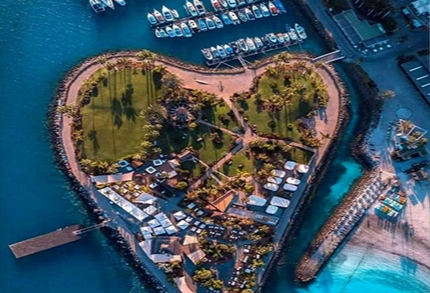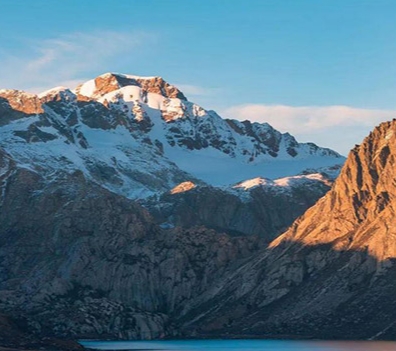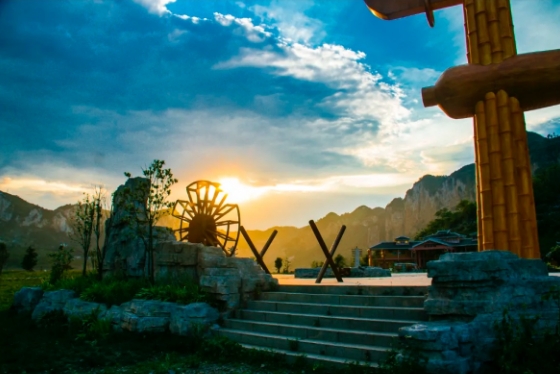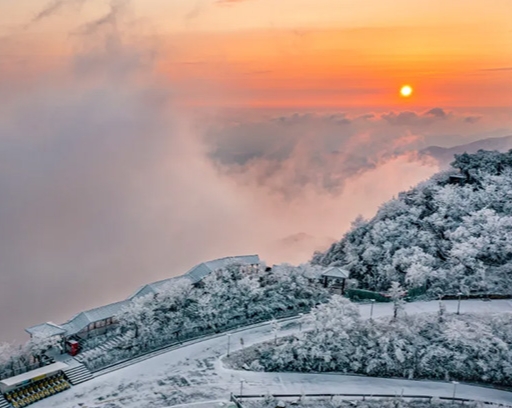国际山地旅游联盟主席多米尼克·德维尔潘的致辞

尊敬的各位阁下、会员,以及亲爱的朋友们,
很遗憾不能和你们一起共聚在美丽的贵州贵阳。因为新冠肺炎,在过去几个月间世界发生了翻天覆地的变化。在这样的时刻,我们所有人都必须就新形势进行评估。而这次国际山地旅游联盟会议就是一个很好的机会。
我们正面临一次极大的挑战。在今年上半年,游客减少了3亿人次,收入减少了3200亿美元,是2009年世界危机期间损失的三倍多。这对公共健康和就业都造成了巨大的影响,并加剧了未来的不确定性。在接下来的几个月会发生什么?各国的边境会关闭多久?航空旅行恢复正常的可能性如何?我们应该考虑至少在未来几年内的两个主要变化。
首先,游客将优先选择在自己国家的当地旅游。这已经是我们在过去几年中观察到的一个增长趋势。我们应该继续推进并发展。第二,乡村和山地应该从这一趋势中收益,这也符合广大民众对回归自然、更多地了解野生动物、当地文化以及保护环境的需求。在这种新趋势的基础上,我们应该更加重视山地旅游创新的必要性,将发展新的基础设施和服务模式与管控下的游客流量相结合。基础设施的模式应符合山地的限制,不破坏这些地区的景观与和谐,这意味着小规模建设,尊重当地传统,接近自然。
同时,重要的是要避免大众旅游的后果,噪音和污染。因此,第二次发展应该是可持续发展,与前一次发展紧密相连,并将农业、自然活动、地方文化、户外娱乐和与保护自然和生物多样性有关的体育活动结合起来。这样一来,山地旅游将为社会变革和经济增长做出更大的贡献,成为当地社区的优势。在一个越来越被大城市和城市化的重要性所主导的世界里,山地旅游有着强烈的需求和互补性。城市生活是由几何、理性和复杂的组织构成的,而山地旅游则相反,是一个充满惊喜和冒险的世界。生活方式的差异,活动方式的差异,人与自然关系的差异,自由感的差异,以及摆脱日常生活约束的机会。山地旅游对于我们每一个人来说,都是自由的礼物,是自然的礼物,与个人和家庭的需求是如此的符合。这就是为什么在今天让每个人都能够享受到它是如此重要,通过为大量不同的客户提供包括不同可能性的多种手段和方案。我们应该通过在大城市建立或发展当地的山地旅游局来鼓励这样的政策,不管是在中国、亚洲,甚至是欧洲,以确保人们能够获得正确的信息,来准备他们的旅行和度假。我们应该将当地旅游的偏爱纳入我们的战略,不仅是出于健康的原因,也是出于环境和文化的需要。
我们的世界在未来的几年里,对全球化发展的关注度会低于我们各个国家自身的关注度。所以在世界的每一个地区,人们将更多地在自己的地理和文化环境中寻找选择和解决方案。这对于中国和亚洲来说是一笔重要的财富,因为在乡村旅游和山地旅游中,当地游客数量大,目的地选择余地大。
这方面的发展可能性是巨大的,但同时我们也要避免只从经济回报的角度出发而采取错误的措施。 过去,我们看到在发展旅游业的过程中,走捷径浪费了自然景观,破坏了大片土地。我们看到欧洲、法国南部、西班牙或意大利的许多海边度假区都犯了这样的错误,他们崇尚速度,无节制地发展旅游业。当做出了错误的选择之后,往往不可能再重新开始。这就是为什么发展必须有组织、有准备,并且在强有力的地方管理下进行。
一个国家,以及一个由数个拥有相同文化和地理的国家组成的地区内政策和良好实践的交流是必须的。互补性和互惠性不应该被竞争规则所取代。国际山地旅游联盟建立的一个在线平台,对与地方和州政府的联系有很大的帮助。就山地旅游而言,在这个后疫情时代,亚洲地区有着令人难以置信的潜力足以媲美欧洲与南美地区,这个竞争市场日趋激烈拥有着全球最高的毛利率。这就是为什么“丝绸之路倡议”代表了旅游业的强烈兴趣,尤其是对整个地区的山地旅游而言。
今天我们正在经历的世界转型是另一个推动变革的因素,鼓励亚洲朝着更团结、更主动的方向前进。中国挑战美国世界领导地位的地缘政治转型,以及气候变化的环境转型亦或5G和人工智能兴起的技术转型,都将发挥越来越大的作用。这种变化带来的社会影响是深远的,不平等现象将越来越严重。全球80%的财富掌握着1%的富人手上,地理分化、政治关系紧张、经济差异也随之增加在这样的背景下,我们要如何适应和利用新的形势。
对于山地旅游来说,我们看到过去几年旅游业出现的集中化、国际化、创新化的新模式,在我看来并不是最好的答案。相反,我们应该寻找有创意的本土解决方案和举措考虑到每个地区的特殊性,并能够为不同的人群和旅游类型提供不同的服务。我们应该考虑到当地的情况来达到这个目标,比如考虑到文化或健康范畴,我们可以提供户外运动或家庭度假。选择的丰富性和多样性将成为有益的优势。多样化的选择、完善的基本设施和高品质服务、可持续发展的措施应该是将来几年新山地政策的三大支柱。
我相信,国际山地旅游联盟将充分发挥其领导作用,造福全社会。但要做到这一点,我们必须充分衡量旅游业在后疫情时代中的关键重要性。当然,目前对全世界许多人来说,旅游似乎是一个不可能实现的梦想。由于出行的困难、航空旅行的限制、还有隔离的措施。但在明天,当世界将再次开放,旅游业会复苏,成为不一样的旅游业。更多的是基于安全上的服务质量,以及人类范围内的组织质量。
所以我们应该事先努力去适应这个新的世界,去预估人们的需求,主要是预估人们的恐惧,他们因为害怕风险和困难,而选择不去旅游,呆在家里。在这方面,山地旅游有很多优势。因为正如我们所看到的,它代表了健康、家庭生活、运动和娱乐的多样性,也代表了文化方面的强大附加值。它帮助我们更好地了解这个世界,发现全新的自己,和全新的生活方式。最重要的是,在一个确定和危险的世界里,它有助于打击偏狭和恐惧。
我们逐步进入了一个新时代,继1991年苏联解体、911恐怖袭击、2008年金融危机、2011年“阿拉伯之春” 和2020年新冠疫情之后。
伴随着这些重要事件,我们看到了人口的增加,中美之间的紧张关系日益加剧,以及多边主义的衰落。在这种情况下,国际社会比以往任何时候都更加脆弱,更加分裂,缺乏找到必要答案的精神和政治工具。我们必须认识到,我们正面临一场巨大的革命,正如16世纪或18世纪的西方世界所经历的那样重要。
全球革命,意味着全球化的危机、民族国家的危机,但首先是文明的危机。我们的全球化正面临着巨大的转型,政治方面,权力正从西部向东部转移,人口结构方面,到2050年世界人口将达到100亿,生态环境方面,全球变暖、自然灾害不断增加,而在技术方面,出现了中美技术竞争和数字空间被分割的风险。在这种情况下,民族国家仍然是世界稳定的关键。但是,面对有利于民族主义、民粹主义和孤立主义的错位和颠覆的风险,除了这些问题之外,我们还面临着传统模式的危机。国际体系正在混合糅杂,有每一个体系中最糟糕的有利于最强者的权利,最具有破坏性国家的主张,无论国家大小,就像我们在朝鲜的案例中看到的那样。但更重要的是,我们的社会在1945年后提出的关于和平与稳定的期望后,因许多未实现的承诺而变得不稳定。世界各地的生产力缺乏、不平等现象日益严重,更令人担忧的是,我们缺乏面对这种情况的有效工具。由于联合国在安全理事会以及在货币基金组织或世界银行的效率低下,缺乏合法性和效率,国际社会常常陷入瘫痪。这样的情况下,生活在恐惧、谣言和不受控制的激情的暴政之下,为不受控制的危险冒险打开了大门。面对这样的混乱局面,我们不应低估风险。首先我们面临着伊斯兰激进主义、恐怖主义的威胁还有歇斯底里的身份认同,以及孤立主义和保护主义的螺旋式上升。第二是全球化碎片化的风险,可能使我们掉进修昔底德陷阱,很大可能会导致战争。但最主要的风险是我们的文明将受到双重挑战,即自私全球化与技术被征用的情况下,为小部分人和国家谋取利益,以确保统治权。并且随着无节制的全球变暖,威胁到地球上的生命本身。
在这种情况下,我想提出些建议。第一,我认为迫切需要建立一个共同外交,基于普遍利益和一些关键原则,老人的平等,每个国家的主权,以及所有文明的尊严。第一个共同当然是和平,这意味着安全理事会的深刻改革。第二个共同应该是保护环境,建立一个世界碳市场和打击砍伐森林的共同工具。第三个共同是文化,让世界人民更好地相互了解。第四个共同那就是旅游。因为没有什么更好的方式能够让人们在自己的环境中探索所有国家和不同的人。旅游是一种独特的体验,可以帮助我们对抗误解、仇恨和偏狭。这样的共同外交应该与多边主义的振兴同步进行,以解决核扩散、军备控制、生物多样性、5G、人工智能、健康数据或物联网等关键技术的共享等问题这样的共同政策也可以鼓励大家更好地理解“一带一路” 等重要的全球倡议,使我们的人民在相互信任和尊重的基础上共同努力。
非常感谢!
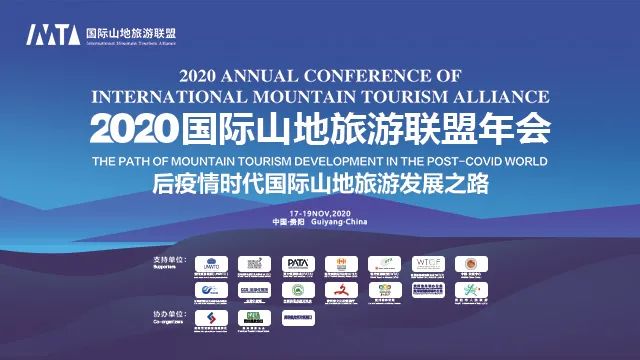
以下为英文全文
The Following is the Full Text in English
▼
Excellencies, distinguished guests, and dear friends.
I’m deeply sorry not to be able to be with you in this beautiful place of Guiyang in the Guizhou Province. Because of the COVID-19, the world has been turned upside down in the last months. In such a moment, it is important for all of us to assess the new situation and this IMTA meeting is a good occasion.
We are facing a fantastic challenge. In the first part of the year, we have seen a drop with 300 million tourists and a loss of $320 billion dollars in revenue, more than three times the losses registered during the world crisis in 2009. The consequences are huge in terms of public health and of course unemployment which is aggravated with the uncertainty waiting in the coming future. What will happen in the next months? How long the borders are going to stay closed? What about the possibilities of air travels to be back to normal? We should consider at least for the next years two main evolutions.
.
First, the tourists will privilege local tourism in their own countries. This is already a growing trend that we have observed in the last years. It should continue and develop. Second, rural and mountain areas should benefit from this trend which corresponds also to a need felt by the general population to go back to nature and learn more about the wildlife, local cultures, and protecting the environment. Building up on such new trends, we should care more and more about the necessity of innovation in mountain tourism, combining the development of a new model of infrastructures and services with a regulated flow of tourists. The model of infrastructure should be adapted to the constraint of mountain areas in order not to destroy the landscapes and the harmony of those areas which means small constructions, respect of local traditions, proximity with nature.
At the same time, it is important to avoid the consequences, noise and pollutions of mass tourism. So the second evolution should be sustainability, very much linked to the previous one and integrating agriculture, nature-based activities, local cultures, outdoor pleasures, and sport activities connected with the protection of nature and biodiversity. In this way, mountain tourism will contribute even more to social change and economic growth are the advantage of local communities. There is a strong need and complementarity of mountain tourism in a world more and more dominated by the importance of big cities and urbanization. While the urban life is made of geometry, rationality, and sophisticated organization, mountain tourism is on the contrary, a world of surprise and adventure. Differences in lifestyles, differences in activities, differences in the relationship with nature and people, differences in the feeling of freedom, and a chance to override the constraints of daily life. Mountain tourism is for each one of us the gift of freedom, the gift of nature that corresponds so much to personal and family needs. That’s why it is so important today to make it accessible to everyone by multiplying tools and formulas for a large variety of clients including different possibilities. Such a policy should be encouraged by the creation or development of local mountain tourism bureau in the big cities, whether in China, Asia, or even Europe to make sure people will have access to the right information in order to prepare their travels and vacations. The preference for local tourism is something that we should integrate in our strategies, not only for health reasons but also for environment and cultural needs.
Our world is going to be less focused in the coming years on the development of globalization than of each of our nation-state. So in each region of the world, people will be looking more for options and solutions within their own geographic and cultural environment. This is an important asset for China and Asia because of the big number of local tourists and the large choice of destination in rural and mountain tourism.
The possibilities of development in this regard are huge but at the same time,
we should avoid to take the wrong steps based only on the vision of financial return. In the past, we have seen that shortcuts in the development of tourism have wasted natural sites and spoiled large areas. We have seen such mistakes in many sea resorts in Europe, south of France, or in Spain or Italy privileging speed and uncontrolled development of tourism. When wrong choices have been made, it is often almost impossible to go back in order to take a fresh start. That’s why an organized and well-prepared proliferation is needed with strong local governance.
The exchange of policies and good practice is absolutely needed within one country but also within one region, including several countries sharing the same culture and geography. Complementarity and reciprocal benefits should not be replaced by the rule of competition.An online platform put in place by IMTA could be of a great help in connection with local and state governments.For mountain tourism, the Asian region has an incredible potential to be compared with Europe and South America but with the advantage today of a more and more competitive market and the highest gross rate of the planet in the post-COVID 19 era.That’s why the Silk Road Initiative represent a strong interest in the tourist sector and particularly for mountain tourism in the whole region.
The world transition we are going through is today another factor, pushing for change and encouraging Asia to move forward towards more unity and initiatives. The geopolitical transition China challenging the US for the world leadership as well as the environmental transition with climate change or the technological transition with the rise of the 5G and Artificial Intelligence are going to play an increasing role. The social consequences of such changes are huge with growing inequalities. The 1% riches of the population concentrating 80% of global wealth, increasing also geographic divisions, political tensions, and economic discrepancies, in such a context, how to adapt and take advantage of the new situation.
For mountain tourism, the new model we have seen emerge in the tourism industry in the last years made of concentration, internationalization, and innovation does not constitute in my mind the best answer. On the contrary, we should be looking for creative local solution and initiative to take into account the specificity of each region and also be able to differentiate the offer for different group of people and type of tourism. We should take into account the local situations to address this target, here in culture or health scale there are outdoor sports or family vacations. The variety and diversity of choices will constitute a helpful advantage. Diversity of choices, quality of infrastructures and services, sustainability of the approach should be the three pillars of the new mountain policy for the next years.
I’m confident that IMTA will fully use its leadership to make it possible for the benefit of the whole community. But in order to do so, we must fully measure the key importance of tourism in our post-COVID world. Of course, right now, tourism seems for many people around the world as an impossible dream because of the difficulty of traveling, because of the limitations on air travel, because of the health constraints. But tomorrow, when the world is going to open again, tourism will be back, a different tourism. More based on the quality of services on the safety and the quality of the organization at a human scale.
That’s why we should try to adapt to this new world beforehand to anticipate the needs of the people, to anticipate mainly the fear of the people who might be tempted to stay home rather than to travel, afraid of the risks and difficulties. In this regard, mountain tourism has many assets. Because as we have seen, it represents a strong added value for health, for family life, for the diversity of sports and entertainment, but also for cultural reasons. It helps understand better our world. It helps discover new people, a new way of life. Most of all, it helps combat intolerance and fear in a more certain and dangerous world.
We have progressively entered a new area, following the fall of the Soviet Union in 1991, the attack of 9/11, the Financial Crisis of 2008, the Arab Spring in 2011, and the COVID 19 in 2020.
Along with these important events, we have seen the rise of population, the growing tensions between the US and China, as well as the decline of multilateralism, as a result, the world community is more fragile and more divided than ever, lacking the spirit and the political tools to find the necessary answer. We have to understand that we are facing a huge revolution as important as the one we have seen in the western world in the 16th or 18th century.
A global revolution meaning a crisis of globalization, a crisis of nation-state but above all, a crisis of civilization. Our globalization is facing a huge transition, political with the shifting of power from the west to the east, demographic with the world population heading to 10 billion in 2050, ecological with global warming and growing natural disasters, technological with the competition between the US and China and the risk of partition of the digital space. In this context, the nation-state remains the key of world’s stability.But facing the risk of dislocation and uprootedness that plays in favor of nationalism, populism, and isolationism, beyond those issues, we are threatened by a crisis of our traditional models. The international system is becoming hybrid with having the worst of every system favoring the right of the strongest, the claims of the most disruptive state, whether big or small as we have seen in the case of North Korea.But more than that, our societies are destabilized by the number of unfulfilled promises following the hope raised after 1945 concerning peace and stability. But also lack of productivity and growing inequalities around the world, even more worrying is the lack of effective tools to face the situation. The world community is too often paralyzed because of the inefficiency of the United Nations blocked at the level of the security council but also in the IMF or in the World Bank, lacking legitimacy and efficiency. Such a situation lives the floor to the tyranny of fear, rumors, and uncontrolled passions, opening the door to uncontrolled and hazardous adventures. Facing such a confusion, we should not underestimate the risks. The first one is confrontation with the threat of radical Islam, terrorism, but also identity hysteria and the spiral of isolationism and protectionism. The second is the risk of fragmentation of globalization that can make us fall into the Thucydides trap that leads to war in most of the cases. But the main risk will be a severe blow to our civilization with the double challenge of a selfish globalization with the scenario of technology being confiscated to the benefit of a limited group of people and countries to ensure domination. Along with an uncontrolled global warming threatening life itself in our planet.
In this context, I would like to make some proposals. First, I believe urgent to put in place a common diplomacy based on the general interest and some key principles, equality of old people, sovereignty of each state, and dignity of all civilization. The first common is of course peace, that implies a profound reform of the security council. The second common should be the defense of the environment with the creation of a world carbon market and a common tool to fight deforestation. The third common is culture which allows the people of the world to get to know each other better. The fourth common is of course tourism. Because nothing better can facilitate the discovery of all the countries and different people in their own environment. Tourism is a unique experience that can help us fight against misunderstandings, hate, and intolerance. Such a commons diplomacy should go along a renewal of multilateralism to address for example, nuclear proliferation, arms control, biodiversity, the sharing of key technologies like 5G, Artificial Intelligence, health data, or the Internet of Things. Such a common policy could encourage also a better understanding of important global initiatives such as One Belt One Road to make our people work together on a reciprocal basis based on trust and respect.
Thank you very much.




